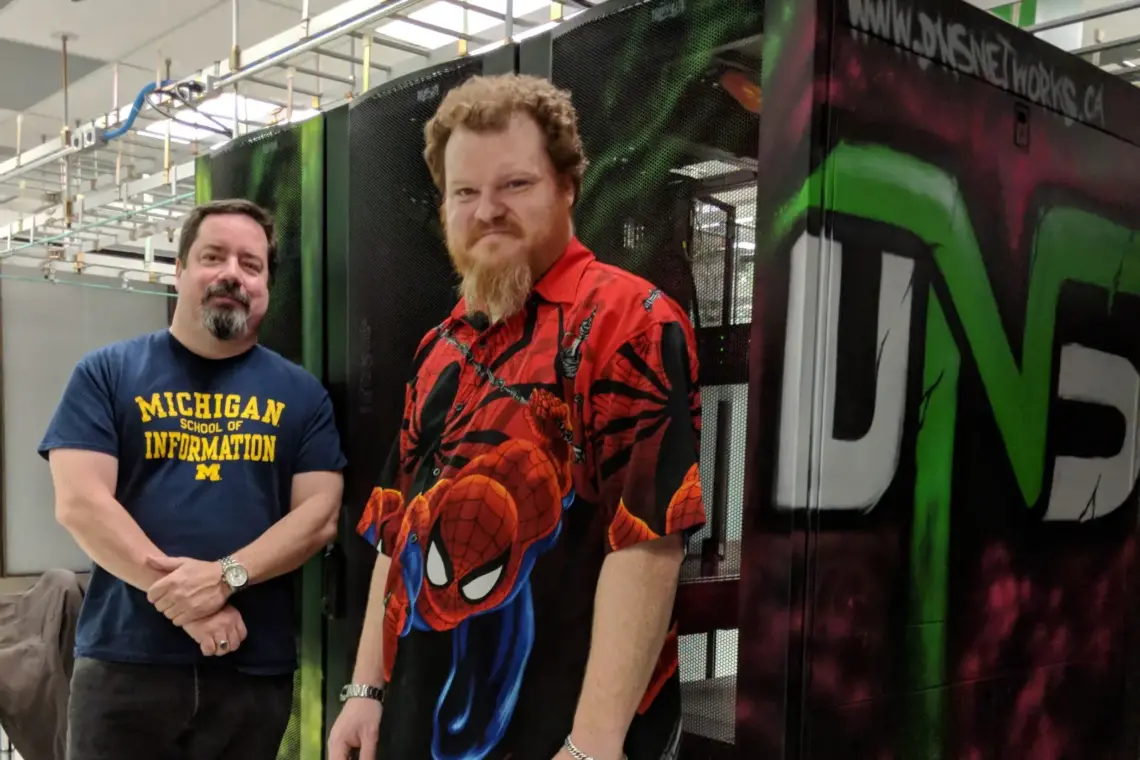
In the heart of the Kanata Research Park, within the home of Purecolo – Ottawa’s newest data centre – beats a freshly commissioned node of Cancer Computer’s cloud services servers.
This really is a story wrapped in a story. A group of successful home-grown tech entrepreneurs are arming the world’s best and brightest cancer researchers with the computing resources they need to beat cancer. They’re backed by a fast-growing network of corporate sponsors. And it’s all in support of the researchers and academic organizations who are the “customers” of Cancer Computer and who benefit daily by harnessing the resources afforded to them at no or significantly subsidized cost.
The organization believes that computers, via computational biology, will cure cancer.
Founded by Roy Chartier, whose day job is designing cloud and supercomputing platforms for enterprises and the public sector, The Supercomputer For Cancer (Cancer Computer), began life as a few nodes of recycled donated servers running in the closets and basements of its founding team.
Executive director Tyler Nelson joined in 2016 as a growing cadre of academics, IT and marketing professionals as well as not-for-profit operational experts came together to build and scale the social enterprise that’s become Cancer Computer.
Shortfall spurs action
While society at large – and often our personal lives – are touched by cancer in its many forms, most of our attention, donations and corporate sponsorship support in the fight against cancer is focused on patient treatment.
Unfortunately, there is a collective lack of awareness of how under-resourced cancer researchers are globally in their fight to advance their work to find and validate new treatments and pharmaceuticals.
While most academic and some publicly funded compute resources are available to the community, these tools are typically not offered free of charge and are capacity constrained.
Furthermore, it’s not uncommon for researchers to wait months or years for a slice of time on a supercomputer platform to conduct critical elements of their research.
It was this shortfall that spurred Chartier to take on the challenge. In just a few short years, Cancer Computer’s innovative business model – powered by its team of dedicated volunteers and corporate sponsors – have propelled the social enterprise to one of the top-performing infrastructure contributors to the fight against cancer globally.
Incorporated as a Canadian not-for-profit with CRA charitable status, Cancer Computer operates in what Nelson describes as the “Goldilocks zone” – a nod to the use of the phrase to describe a “just right” space where everyone supporting Cancer Computer benefits.
On one side of the business model, Nelson and the team find corporate sponsors that donate various hardware elements, servers, storage arrays, racks and power supplies, all of which have typically reached the end of their life in a production environment.
This point in time is typically also when the financial capital depreciation benefits have been exhausted and the point where, after three or four years, the market’s natural evolution has delivered faster processors, more efficient storage and lower operating costs that power the natural IT replacement and upgrade cycle.
Hardware donated to Cancer Computer is supported by an eligible offsetting tax deduction for the corporate sponsor along with the community and staff goodwill benefits.
The Cancer Computer team then works to reconfigure, upgrade where possible and redeploy the hardware into one of their growing number of sponsor supported data centre partner locations across Canada.
Here at 390 March Rd., Purecolo – along with DNS Networks, a managed IT service provider – have come together in a perfect depiction of Cancer Computer at work.
The hardware was deployed into a DNS Network infrastructure hosted by Purecolo, and today a team of cancer researchers are using it to model drug and protein interactions inside a virtual lab run by Cancer Computer.
That’s a social enterprise in action – and it’s happening right here in Kanata.
Tyler Nelson is the executive director of Cancer Computer. Roy Chartier is the organization’s chief technology officer.
